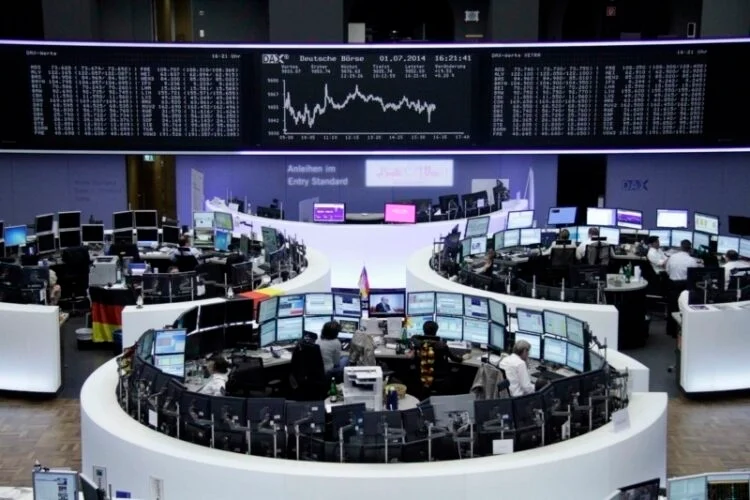Publisher: Maaal International Media Company
License: 465734
Knight Frank: Warehouses near 100% occupancy as Saudi’s industrial transformation continues
Saudi Arabia is on track to become the Middle East’s leading industrial hub, driven by strong e-commerce growth, government initiatives, increased foreign and domestic investment, and infrastructure development, according to the Saudi Arabia Industrial and Logistics Market Review from global property consultancy Knight Frank.
The Saudi industrial sector saw significant growth in 2024, with 1,346 new industrial licences issued and total capital investment in newly licensed factories reaching SAR 50bn. However, a lack of available warehousing and logistics space is pushing up rents.
Riyadh experienced the most significant year-on-year growth in warehouse rents in the Kingdom, registering a 16% increase in average lease rates. Rents reached an average of SAR 208 per sqm, with prime properties commanding over SAR 250 per sqm, as the overall occupancy rate hit 98%. Strong demand saw ready-built warehouses in Al Masani, Al Bariah, Al Faruq and Al Manakh achieve even stronger rental growth of more than 20%. Meanwhile, the city’s total warehousing and logistics stock amounts to approximately 28 million sqm.
Government-backed entities such as MODON and PIF-linked organisations continue to drive expansion across key industrial zones, attracting the attention of private sector investors. While no major completions were recorded in 2024, several high-value agreements were signed, signalling robust expansion over the next four years. The sector is expected to be increasingly steered by built-to-suit developments that meet the specialised requirements of high-growth industries, said Knight Frank.
Faisal Durrani, Partner – Head of Research, MENA at Knight Frank, said: “Leasing activity remains strong across most of Riyadh’s submarkets, with demand continuing to outpace supply despite elevated rents. While upcoming developments are expected to bring new stock to market, this is unlikely to significantly ease rental pressures as sustained demand continues to drive upward pressure on rates.
This mirrors a broader national shift as Saudi Arabia’s industrial and logistics landscape enters a pivotal phase of transformation. Strategic initiatives such as the NIDLP and the rollout of Special Economic Zones are attracting significant investment and accelerating demand for modern, built-to-suit facilities.”
JEDDAH’S EXPANDING LOGISTICS HUB
Jeddah’s warehouse market continues to see steady demand, driving a modest increase in lease rates. Average rents have reached SAR 238 per sqm, while occupancy levels remain high at 97%. In terms of supply, Jeddah continues to follow a similar momentum to Riyadh, with a slight expansion in warehouse and logistics stock, bringing total inventory to 19.8 million sqm. Despite the absence of major project completions over the past six months, the development pipeline is expected to support a 15.53% increase in warehouse supply by 2030, said Knight Frank.
The Al Khomrah district remains the city’s dominant logistics hub, accounting for approximately 82% of Jeddah’s total warehouse stock. Smaller warehouse developments throughout 2024 have further reinforced its role as the primary logistics corridor, benefiting from strategic connectivity to Jeddah’s industrial zones and seaports.
اقرأ المزيد
GOVERNMENT INITIATIVES DRIVING GROWTH
The National Industrial Development and Logistics Program (NIDLP) continues to be a key driver of industrial growth, aiming to boost the transport and logistics sector’s contribution to GDP from 6% in 2021 to 10% by 2030 through regulatory reforms and substantial investments in connectivity and trade infrastructure.
The establishment of Saudi Economic Zones (SEZs), such as the King Salman Automotive Cluster in the King Abdullah Economic City and the Riyadh Integrated SEZ, is fostering growth in logistics and supply chain operations. These zones operate under public-private partnerships, attracting international businesses and strengthening the Kingdom’s position in global trade networks.
Knight Frank noted that foreign direct investment (FDI) reforms are creating a more open and competitive market, encouraging foreign investors to establish and operate logistics businesses in Saudi Arabia. As a result, multinational corporations are increasingly forming strategic partnerships with local entities, and a series of major private sector agreements were secured in 2024.
Notable deals struck over the past year included Saudi property developer Kaden partnering with global logistics provider DB Schenker to expand logistics capabilities in the Kingdom; GFH Financial Group agreeing a collaboration with Panattoni Saudi Arabia to develop 500,000 sqm of premium logistics facilities; and Arcapita Group Holdings and Saudi firm Rikaz jointly developing a high-end logistics park in Riyadh.
REGIONAL LOGISTICS POWERHOUSE
The Knight Frank report also identified sustainability as a major market driver, highlighting that leading firms such as Maersk and Agility Logistics are pioneering green infrastructure, leveraging solar power and energy-efficient warehousing to meet environmental goals.
Adam Wynne, Head of Commercial Agency at Knight Frank, said: “Saudi Arabia remains a pivotal hub for global business expansion, with the Kingdom continuing to attract interest from around the world.”
Wynne added: “The industrial and logistics sector in the country is undergoing a remarkable transformation, fuelled by advancements in technology, a strong focus on sustainability, and increasing international collaboration. The Kingdom continues to drive forward its Vision 2030 agenda, emerging trends such as built-to-let developments, automation, and cross-border investment are reshaping the landscape and unlocking significant growth potential.
“With robust government support, rising investor confidence, and a clear commitment to innovation and sustainability, Saudi Arabia is well-positioned to establish itself as a leading logistics hub in the region.”








